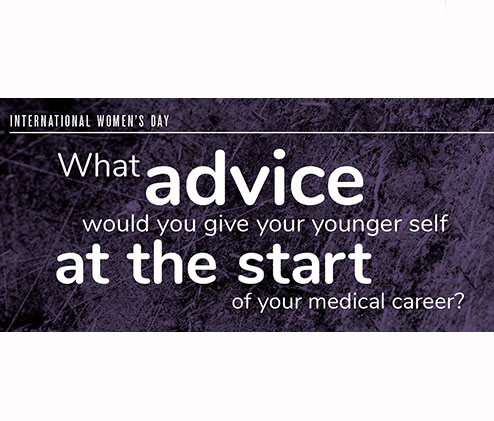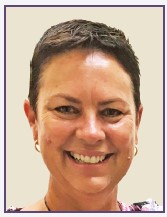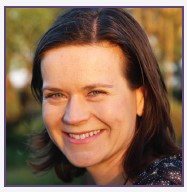

Blog

Flashback Friday: What advice would you give your younger self at the start of your medical career?
Wednesday March 11, 2020
DR ANGELA JANE ALESSANDRI
Associate Professor, School of Medicine, University of Notre Dame, Fremantle. Consultant Paediatrician, Rural Paediatric Service, Child and Adolescent Health Service
Such a simple question, but a deceptively difficult task. How does one distil over 30 years of medical experience into a few pithy takeaway points?
So many highs and lows, triumphs and tragedies, smiles and tears. It really has been the best of times and the worst of times. Here is what I would tell Angela circa 1989.
- Don’t try and save the world – it is not possible and definitely not your
job. - Some tasks do not require 200 per cent effort – learn to moderate how much time and energy you put into each task.
- You are perfectly imperfect – you will make mistakes even when you are doing everything possible to avoid them. You need to reflect on your performance and learn your lessons but not beat yourself up indefinitely.
- Learn to say ‘no’ and set boundaries around others’ behaviour – being ‘likeable’ and a ‘team player’ does not mean you should agree to every request or tolerate poor behaviour from others. Learning to hold people accountable for their behaviour in a kind and consistent way will make your life and the lives of those around you much more tolerable.
- Develop your self-compassion and attend to your self-care – by your nature, you will always focus your attention on the care of others, however, without appropriate self-care, including self-compassion, your time in clinical medicine will be shortened.
- Be aware that not everyone has your best interests at heart – you will meet amazing mentors but also people who are more interested in their own progress than yours.
- Do not be surprised that your professional mission is not shared by all – despite what they say, not everyone acts as if promoting the interests of the patients and their families is their primary role in a healthcare organisation.
- Never forget that you have choices – just because you have spent years developing your skills in a particular area, you are not incapable of doing anything else at a similar level. Your medical training will provide you with highly honed skills that are generalisable to many other areas. Never feel trapped by your professional circumstances – you are more than capable of successfully re-inventing yourself.
- Yoga will be an important part of your life – you may find it difficult to connect with the teachers you need at first, but don’t give up! Your yoga practice will nourish your mind, body and spirit and assist you in finding a way to live with more joy and ease.
- Finally, you are at your best when you are connecting with your patients and colleagues open heartedly. As difficult asthis can be at times, always try and approach your interactions from a place of love and care – you will be rewarded with extraordinary life-affirming and sustaining experiences.
DR LORRAINE ANDERSON
 Medical Director, Kimberley Aboriginal Medical Services
Medical Director, Kimberley Aboriginal Medical Services
As I enter the final quarter of my career and think back to the beginning, I find myself reflecting on how focused my early work was, on the western medicine model of care. Where western life was set as the standard for normal life and the western paradigm was seen as unbiased. When I say western, I’m talking about influence, privilege and opinions associated with non-Aboriginal people.
Western models of care focus on biomedical disease status and not on the culture within which sickness and health occur, so the way I was taught medicine is ultimately flawed at the beginning because of this disparity between the western ideal of good health and that of Aboriginal culture.
Ultimately, we need to acknowledge and appreciate the connection between culture, health and wellbeing. We need to be teaching our young doctors from the beginning, that health and wellbeing are improved when cultural elements are respected, practised and incorporated into people’s lives.
So as a young doctor, I would be urging myself to consider these things and be willing to challenge the system and entertain my own cultural views without fear.
DR IOANA VLAD
 Emergency Medicine Physician & Clinical Toxicologist
Emergency Medicine Physician & Clinical Toxicologist
Co-Director of Emergency Medicine Training, Sir Charles Gairdner Hospital
I have been fortunate enough to live, learn and work in different medical systems throughout my life and they all shaped my career and interaction with patients and colleagues.
I graduated medical school in Romania where medical paternalism is the accepted model of care. My mentor at the time, an excellent paediatrician, was one of the few who realised that this approach was detrimental to patients. She understood that parents avoided bringing their sick children to hospital due to health illiteracy or lack of trust.
I was advised that good communication and taking time to explain the illness and treatment were rewarded with compliance.
I immigrated to Australia during my internship year and started working a few months later after passing the AMC exam. I continued my practice to communicate the best I could and put myself in the patient’s shoes to understand the illness and proposed treatments from their perspective. Only to be given another nugget of advice just before I became a Consultant.
For the final Emergency Medicine exam, we had to sit SCEs (Structured Clinical Examination), some of which involved interacting with a simulated patient. During a mock SCE, I had to break bad news to a young lady who was having a miscarriage.
To my surprise, I was told that I failed that station as I was not empathetic enough. Once the unavoidable panic dissipated and tears dried out, I understood the advice from the examiner: that despite my attempt to wear the patient’s shoes, her beliefs, emotions and experiences led her to a different understanding and choice.
So now in all my interactions with patients or colleagues, I try to understand rather than judge, request rather than order and take as much as I can even out of apparently boring meetings or tutorials.

